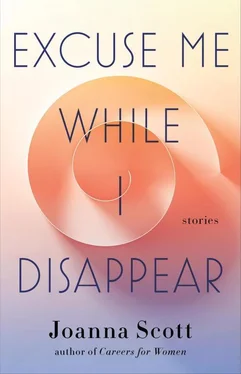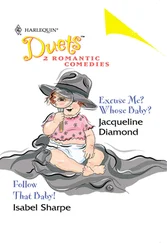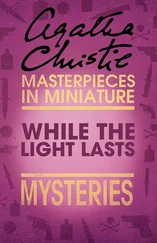“I have plenty, lovey, thank you.” She picked out the pills and tossed them both in her mouth, then made a show of taking a swig of water from her glass. “This young lady has come for a chat. So if you’ll excuse us…” She nodded in the direction of the door.
The nurse hesitated. “You’ll let me know if you need anything?”
“Absolutely, sweetheart. Now go, shoo, shoo.” She waited until he had closed the door behind him, then leaned over, opened the drawer of her bedside table, and extracted a box. Cracking the lid, she removed the two pills from her mouth and added them to a substantial collection of pills in the box. “Don’t tell,” she said. Her imperious smile was clearly aimed to remind me that I was a minion beholden to her goodwill. “Now where were we?”
“Olivia Gastrell.”
“Ah, yes. She once told me that she had an ancestor who chopped down a mulberry tree that was said to have been planted by William Shakespeare. To this day, the name Gastrell is banned in Stratford-upon-Avon.”
“And Olivia, is she—”
“Fort Worth. I’ll let her know you’re coming.” Suddenly her gaze was harsh, boring into me, daring me to react. I didn’t know what to say. I was embarrassed and resentful at being forced into extending my inquiry yet again. Didn’t she realize that I was there to preserve the reputation of Eleanor Feal? But in the evasive manner that I’d come to realize was typical for the writers I’d tracked down so far, Eleanor Feal didn’t want to tell me about herself. She wanted to tell me about Olivia Gastrell.
It was the same outcome, interview after interview. I aimed to reconstruct a writer’s work from scratch but ended up being directed by each of them to the beginning of someone else’s story. After six months and twenty-seven separate interviews, I had failed to recover a single book.
II.
There was a welcome coolness in the breeze that skimmed the river. As I crossed the pedestrian bridge, I saw the sleek back of a beaver swimming toward the shore, pushing a newly felled branch that looked like a rack strung with pieces of green silk. In the shallows, a magnificent heron stood patiently, as if awaiting its delivery. The beaver drew nearer, still pushing the branch, changing its course only at the last moment, swimming upstream to some other destination.
I leaned against the iron rail and watched for several minutes. The heron remained stock-still, the current swirling around its legs, its yellow eye unblinking, the blue plume extending from the back of its head like a pomaded spike of hair. I was hoping the bird would rise into the air—I wanted to see the slow beat of its wings as it flew overhead. But it just stood there, so I walked on. Hearing a splash, I turned just in time to witness the heron lift its dripping head from the water and with a deft movement drop the fish that had been clamped in its beak headfirst into its gullet.
There in the heart of the city, the natural world was thriving. Along the path curving across campus, chipmunks scampered ahead of my footsteps. It was early May, and the air was redolent with the fragrance of the lilacs. Petals from the magnolias flitted like butterflies in the breeze. The sun, as if summoned by the carillon chiming in the tower of the Knowledge Gallery, peeked shyly out from behind a flat-bottomed cumulus cotton ball.
I was in good spirits that day, contemplating the lovely campus and the equilibrium of a planet that had fully recovered from its long fever. The climate was healthy again, thanks to the ingenuity of our scientists. We were like angels dining on wind and light and water. Life itself seemed infinitely renewable.
I was sorry to have to go inside, but I had research to do, and the Knowledge Gallery was scheduled to close early, as it often did, for a special administrative function. The building, a five-story former library with sloping floors that spiraled around a hollow interior, seemed to be more useful as a party house than a location for scholarly research. Still, the resources were vast, with thousands of databases that could be accessed by anyone with a VPN account. Numerous work spaces were furnished with whiteboards, televisions, self-service espresso machines, and more Macs than there were students enrolled in the university.
If the Gallery had one acknowledged problem, it was the noise. Most of the work spaces opened up to the echo chamber of the central gallery. From the main floor, you could easily hear the conversation of people on the fourth floor. On a given day you might hear biology students comparing lab results, research advisers explaining how to modify a search, two young lovers setting up their next date. And you could always hear hundreds of fingers tap tap tap ping on keyboards.
After a year as a graduate student on campus, I’d found a relatively quiet space at the back of the Rare Books Department, behind the cases used to display simulated manuscripts. Most of the furniture in the building was manufactured with repurposed metal or plastic, but in the Rare Books Department there were four beautiful antique tables made of oak. I loved the earthy smell and the rosy heartwood grain of those tables. And I appreciated the serenity of the department. Few visitors came to see the simulations, since everything in the cases was viewable in more detail in online exhibitions.
On this particular day I was verifying references for the second chapter of my dissertation and hoped to start assembling notes for chapter three. My subject was Avantism—a recent literary movement based in the US. Focusing on six writers who identified themselves as Avantis, I intended to argue that Avantism had its roots in once popular fiction of the early twentieth century and drew especially from the work of a little-known Spanish writer named Vicente Blasco Ibáñez.
In terms of its basic elements, Avantism was as diverse as literature itself. There were mysteries, tragedies, farces, fictional biographies, and biographical fictions. One novel used an encyclopedic structure, with chapters arranged alphabetically by subject. Another built its narrative out of a collage of quotes taken from other Avanti texts. Some were set in an apocalyptic future, when civilization had deteriorated into either anarchy or tyranny, and their plots involved characters struggling with the most basic hardships—there were famine and flood stories, homesteading stories set in harsh lands, stories about superflus and climate change, and stories about the total devastation of a final world war. All of the manuscripts were handwritten. Finished books were produced by expert letterpress printers on pearlescent wove paper, with painted cloth bindings.
What united the Avanti authors, besides the care they took with the printing of their books, was their love of spectral manifestations. All the Avanti novels I’d read, plus those I knew of through hearsay, included at least one ghost.
The Avantis prided themselves on scorning publicity. They had no websites, sent no tweets, and were rarely photographed. Their work appeared only in hard copy. Once all publications became electronic, the Avantis refused to publish at all, sharing manuscripts only among themselves. The general public was indifferent. By the time I’d narrowed down the subject of my dissertation, few people had ever heard of the Avantis; fewer still had read any of their books.
As a scholar of Avantism, I had to be a clever detective. I was constantly testing the strength of various search engines against the defenses of the Avanti writers. They’d resolved to hide themselves from scholars. I was determined to write their history. By then I’d spent two years on research and had a fellowship that would support me for two more years. In the end, I hoped to have a notable dissertation that would secure me enough interest from foundations to fund a Web appointment as a digital humanities scholar.
Читать дальше












